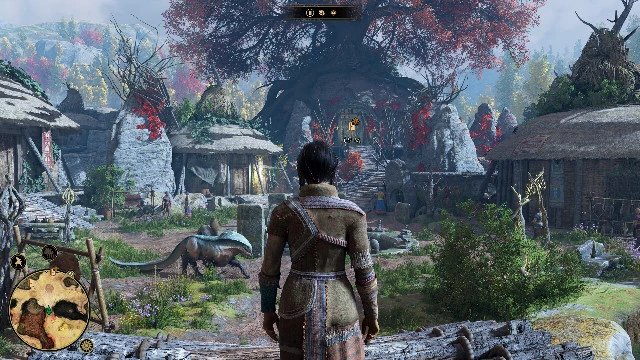The Evolution of Colonial Narratives in Gaming
The representation of colonial narratives in gaming has undergone a significant transformation since the inception of the medium. Early titles often romanticized exploration and conquest, portraying colonial figures as heroic adventurers conquering and civilizing ‘exotic’ lands. Games like “Civilization” and “Age of Empires” exemplified this trend, depicting powerful empires expanding their territories without adequately addressing the ethical complexities surrounding colonization and its impact on indigenous cultures.
As the gaming industry evolved, the portrayal of these narratives began to shift towards more nuanced representations. Contemporary titles have started to highlight the consequences and moral ambiguities of colonialism, offering players a chance to confront historical injustices rather than merely glorifying them. Games such as “Assassin’s Creed III” and “Far Cry 3” showcase the clash of cultures and challenge players to critically reflect on the power dynamics associated with colonization. These shifts in narrative focus create a richer gaming experience that encourages dialogue about representation and ethical implications.
“GreedFall,” in particular, has made strides in weaving colonial narratives into its gameplay and story. Set in a fantastical land inspired by 17th-century colonialism, it presents a world rife with conflict between colonizers and native inhabitants. The game prompts players to navigate choices that reflect the complexities of power and identity, fostering an understanding of both sides of the colonial narrative. By engaging with these themes, “GreedFall” not only contributes to the ongoing evolution of colonial narratives in gaming but also encourages players to critically assess the intentions behind such portrayals.
This evolution illustrates a necessary shift from simplistic depictions of colonialism to more intricate, representative narratives that bear moral weight. Moving forward, it is essential for game developers to continue exploring this legacy, ensuring a more ethical approach to storytelling that thoughtfully addresses the historical ramifications of colonialism in gaming culture.
GreedFall: A Case Study in Colonial Fantasy
GreedFall, a role-playing game developed by Spiders, serves as a compelling case study in the realm of colonial fantasy within gaming. Set in the fantastical world of Teer Fradee, the game intricately weaves a narrative that explores the effects of colonization through the lens of the 17th century. The storyline follows the player, a character known as the Legate, who journeys to the newly discovered island in search of a cure for a deadly disease ravaging their homeland. This quest brings the Legate into contact with various factions, including the colonizers, local indigenous peoples, and supernatural creatures, each representing different facets of this colonial fantasy.
The game excels in its nuanced portrayal of colonial interaction. Players are faced with choices that can encourage understanding or exploitation, reflecting the moral ambiguities often present in real-world colonization. For example, players may decide to ally with indigenous tribes, fostering cooperation and respect for their culture, or engage in manipulation and conflict for personal gain. This mechanic not only enriches the gameplay experience but also provides a reflective commentary on the historical implications of colonization and the complexities of cultural exchange.
Moreover, GreedFall’s well-crafted world-building significantly impacts the player’s engagement with the narrative. The richly detailed environments, filled with lush landscapes and intricate settlements, create an immersive backdrop that enhances the themes of exploration and discovery. The relationships between the various factions are further developed through dialogue, missions, and quests, ensuring that the story feels dynamic and responsive to player decisions. Through this intricate balance of narrative and gameplay mechanics, GreedFall illustrates both the potential and perils of colonial fantasy, inviting players to consider their roles and responsibilities within these complex narrative frameworks.
GreedFall 2: Innovations and Narratives
The anticipated sequel, GreedFall 2, represents a significant evolution of the themes established in its predecessor, promising to delve deeper into the intricate dynamics of colonial fantasy within the gaming landscape. Set within the same richly developed world, the sequel is expected to introduce a host of innovations, including enhanced gameplay mechanics and complex story arcs that further articulate the struggles between colonizers and indigenous cultures. The gameplay experience is designed to be more immersive, with new systems improving exploration and combat, reflecting a nuanced approach to player agency in a colonial context.
From early previews and community discussions, it is evident that the developers, Spiders, are committed to expanding the narrative beyond traditional colonial tropes. Players will navigate the moral complexities that arise from colonization while interacting with diverse characters whose backgrounds and motivations significantly shape the story. Character development is pivotal in GreedFall 2, allowing for deeper engagement with both allies and adversaries, which will encourage players to reflect on the implications of their choices in the game’s narrative.
Additionally, community expectations surrounding representation and sensitivity toward historical themes have been acknowledged by the developers. With the gaming community becoming increasingly aware of the impact of narratives on societal perceptions, Spiders aims to incorporate modern sensibilities into storytelling. This involves a deliberate effort to authentically portray the diverse cultures and complexities of the game’s world, presenting players not only with a compelling fantasy but also with a thoughtful exploration of the consequences of colonialism.
Overall, GreedFall 2 stands to refine its predecessor’s legacy while fortifying its stance within the genre of colonial fantasy in gaming. This sequel is set to engage players not just through innovative gameplay and rich narratives, but also through its thoughtful approach to representation and storytelling, setting a new benchmark for future titles.
The Future of Colonial Themes in Gaming
The trajectory of colonial narratives in gaming is a subject of ongoing debate and speculation, particularly with the anticipated release of GreedFall 2. As developers continue to evolve their storytelling methods, colonial themes may take on new forms, providing opportunities for nuanced explorations of history and representation. Games have the power to shape cultural understanding, and as such, they are uniquely positioned to either reinforce or challenge traditional narratives surrounding colonialism.
Moving forward, we can expect a growing influence of games like GreedFall 2, which present indigenous perspectives and subvert the typical narratives found in mainstream gaming. This shift may inspire other developers to explore similar themes, leading to a richer tapestry of storytelling that engages with colonial histories in more diverse and thoughtful ways. Insights provided by industry experts suggest that gamers are increasingly seeking authenticity in storytelling, pushing creators to consider more ethically responsible representations of colonialism.
The conversation surrounding representation extends beyond the games themselves to encompass the ethical considerations of who is telling these stories. As the gaming industry becomes more aware of cultural sensitivity, it is likely that future titles will prioritize collaboration with cultural consultants and historians. This trend may aid in fostering a more accurate portrayal of the complexities involved in colonial histories, ultimately enhancing the educational potential of video games.
Moreover, the rise of gaming as a platform for social commentary places colonial themes at the forefront of industry discussions. Developers may increasingly grapple with the implications of their narratives on players’ understanding of historical events and their relevance to contemporary issues. The continued legacy of colonial themes in games like GreedFall 2 suggests that there remains significant space for conversation surrounding these ethical considerations, particularly as the interactive medium evolves.

